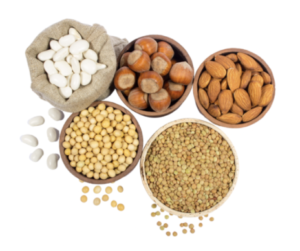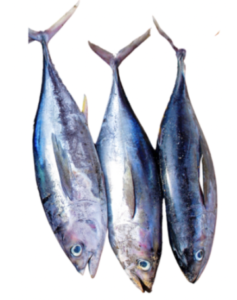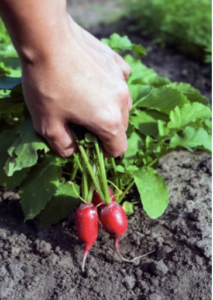What we choose to eat has an influence on climate and wildlife, through greenhouse gas emissions, deforestation and loss of biodiversity as well as soil degradation. Making some small changes with our food choices can have a big impact on making the world a healthier and more environmentally friendly place to live for years to come.
Here are 8 tips on how to make some simple changes to your diet and lifestyle, to live more sustainably:
Shop seasonally and locally
Produce that is grown locally will have lower costs of production, transport and storage compared to those flown or shipped from overseas. This is particularly true for foods grown out of their natural season, as this requires extra resources. In addition, a lot of fruits and vegetables are pre-packaged in plastic which may be un-recyclable. Therefore, consuming local produce in season is more sustainable and often is less expensive. Especially if you can pick your own produce and take it home in a paper/reusable bag!
There are also some great quality fruit and vegetables that can be brought frozen or tinned if they are out of season too, that are just as nutritious as buying fresh, if not more so!
Increase plant proteins

The production of plant proteins has a far smaller environmental impact compared to that of animal protein1. These include lentils, beans, tofu and other soya products, Quorn, nuts & seeds and grains. Think of creative ways to add more plant proteins into your diet – such as swapping out some beef in your Bolognese for some lentils instead, or making a plant based curry with chickpeas. If you think you are not the biggest tofu fan, give it another go – it’s all about the flavouring and how you cook it, which can make such a difference to the end result.
There is also an excellent range of plant based convenience foods in the supermarkets, so give them a go to see what you enjoy!
Plant based diets can also be naturally higher in fibre and lower in saturated fats, which is great for our health too.
Reduce red meat consumption
More resources are needed to produce animal protein (in particular beef) compared to plant protein (such as lentils and beans). Reducing your intake of animal protein can be a great way of eating more sustainably2. For example, try to have at least 1 meat free day a week (how about ‘meat-free Mondays?’), and also choose meats such as chicken and turkey over beef where you can. Trying to use the less popular cuts of meat can also be a great way to make use of the entire animal – such as flank, blade or chuck.
Choose sustainable seafood

Years of overfishing are depleting fish populations and warming the oceans. However, if you enjoy seafood in your diet, you do not need to cut it out completely. Instead, opt for seafood that has been sustainably sourced and caught, instead of the conventional trawling methods. The fish most at risk in the UK include cod, haddock, salmon, tuna and prawns.
The Marine Conservation Society has created a five-tiered system to rank each species on ‘Best Choice’ to ‘Fish to Avoid’. This is based on the methods used to catch it, location and the fish itself. Some species that are better to eat include Handline-caught mackerel, red mullet and Dover sole. You can check out this list here: https://www.mcsuk.org/goodfishguide/?page=1
Sourcing your fish from smaller scale UK fishermen is also a great way to be more sustainable. There are some businesses set up with UK fisherman to help people gain fresh and sustainable seafood to their door too.
Reduce dairy consumption
Compared to cow’s milk, soya production produces significantly less greenhouse gas emissions as well as less land and water. However, there are some cons to some plant based dairy drinks. For example, almond milk uses a much higher level of water than cow’s milk per litre, and oat milk production causes more environmental acidification compared to cow’s milk. It is not as straightforward when you consider all of these areas!
More studies are needed to investigate sustainability as a whole, but overall, production of most plant-based drinks are better for the environment compared to cow’s milk4. Try to choose a fortified plant based drink alternative to ensure you are not missing out on key nutrients.
Minimise food waste
In the UK, it’s estimated that we throw away 9.5 million tonnes of food each year5! And most of this food waste ends up at landfill sites, which contribute to global warming.
Avoiding having to waste food at home can be an excellent way to help make your lifestyle more sustainable. For example, trying to prevent over-buying food when shopping. Create a list for your shopping trips – this means you are more likely to buy foods that you know you will eat before they expire. Planning meals ahead of time will also help reduce excess buying of ingredients that can end up being wasted.
Learning to utilise leftovers and using your freezer more often to store excess foods and meals can help reduce waste.
Grow your own

What is more rewarding than growing the fruit and vegetables that you put on the table?
No use of pesticides or chemicals, and it will have no impact on your carbon footprint! Some produce such as courgettes, beans, chillies, beetroot and tomatoes can be simple to grow at home, and it could turn into a fun project to get the family involved too!
Drink from a refillable and reusable water bottle
A great way to reduce landfill waste from plastic water bottles that often get thrown away or end up in oceans, is to buy a reusable bottle. Some are even made from recycled and renewable materials. And this is a nice excuse to treat yourself to a reusable bottle, not that you should need one! The production of soft drinks and fruit juice is also a big contributor to dietary greenhouse gasses, so increasing your water intake can have a multitude of benefits.
Finally as a bonus tip… Eating insects?
Okay hear us out! Researchers have been looking into how insect protein can help reduce our carbon footprint. There are various populations across the world that already consume insects regularly as a part of their diet, so why not here in the UK?
Some insects such as crickets can be a great source of protein, iron and B12, which may be lacking in a plant-based diet. And gram for gram, they require less land, water and feed than traditional livestock, and also produce lower greenhouse gas emissions.
Whist it may take a little while longer to see insects available in our supermarkets, you can buy some online if you are keen to give them a go!
By Reema Patel, Dietitian at Dietitian Fit & Co
References:
1- Pimentel D, Pimentel M. Sustainability of meat-based and plant-based diets and the environment. Am J Clin Nutr. 2003 Sep;78(3 Suppl):660S-663S. doi: 10.1093/ajcn/78.3.660S. PMID: 12936963.
2- https://www.idtechex.com/en/research-article/the-meat-industry-is-unsustainable/20231
3- https://sustainablefoodtrust.org/articles/what-is-the-most-sustainable-seafood-to-eat-in-the-uk/
4- Poore, J., and T. Nemecek. “Reducing Food’s Environmental Impacts through Producers and Consumers.” Science, vol. 360, no. 6392, American Association for the Advancement of Science, 2018, pp. 987–92.
5- https://www.businesswaste.co.uk/food-waste-2021-the-facts/







